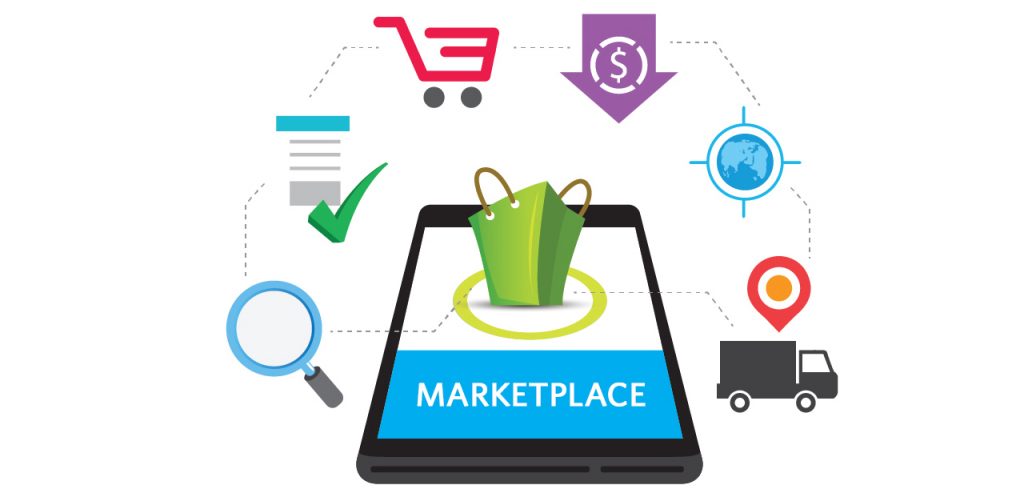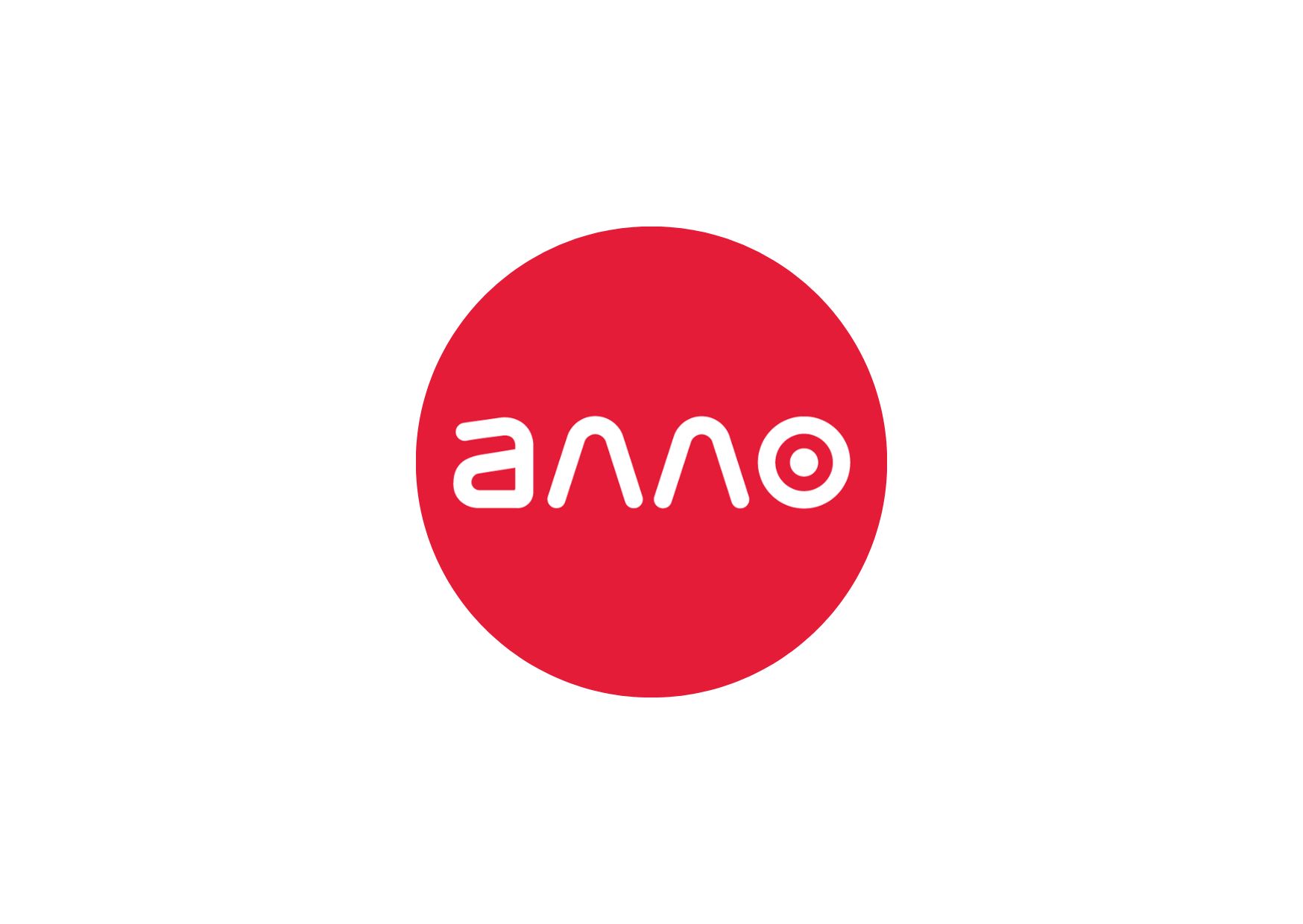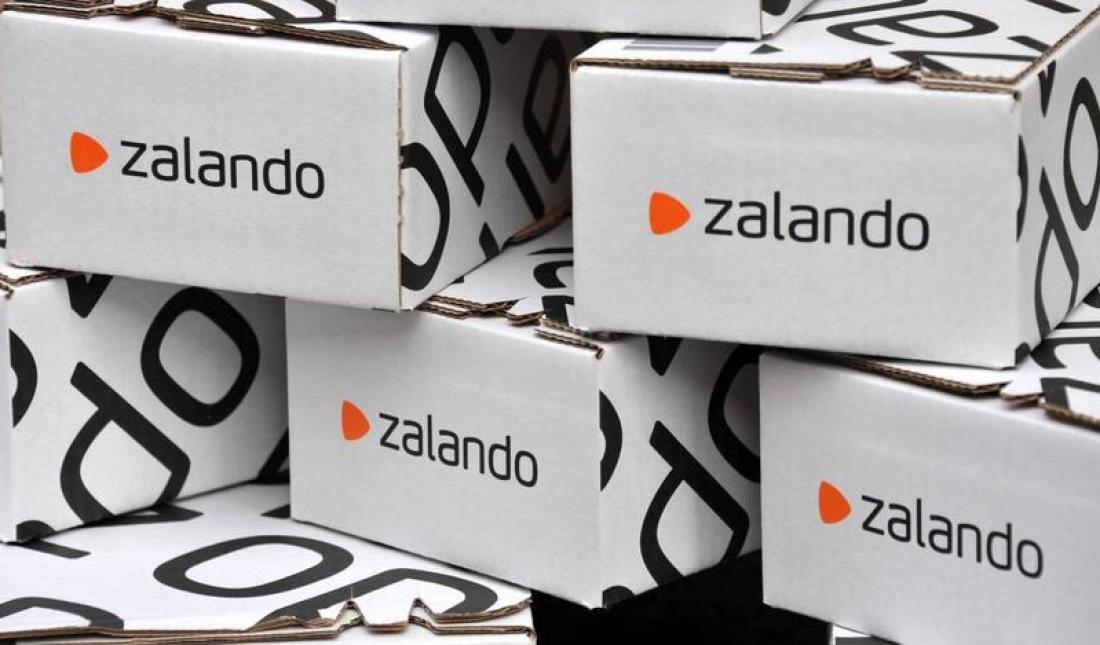Content of the article

A marketplace is an electronic platform that acts as an intermediary between sellers and buyers, where a variety of goods and services can be bought and sold. They have become an integral part of modern e-commerce, providing a convenient mechanism for conducting trade transactions over the Internet.
The idea of marketplaces has its roots in the history of commerce, when markets and fairs served as a gathering place for sellers and buyers to exchange goods. With the advent of the Internet and the development of technology, marketplaces have brought this concept to the online environment, providing global access to a variety of goods and services.
Today, marketplaces are not only platforms for selling, but also places where manufacturers, distributors and small businesses can find their customers around the world. They provide safe operations, a variety of choices, and also contribute to increasing competition and improving the quality of service.
In recent years, marketplaces have grown in popularity significantly, which is reflected in the statistics: according to data, 56% of global sales of e-commerce is carried out precisely through marketplaces. This shows their relevance and importance to the modern economy, where they play a key role in facilitating trade and providing access to markets for different groups of sellers and buyers.
Marketplace ≠ online store
A marketplace is often confused with an online store, and it’s important to understand that these are two different platforms. Marketplace is a platform that hosts many online stores. It’s like comparing a large shopping center with stores of different brands to an individual boutique of one brand. An online store is a separate site of one brand, where only this brand’s products are presented. In the marketplace, goods of various brands and, in general, goods of various purposes are presented.

If you choose between placing on the marketplace or opening your own online store, you should understand all the advantages of one and another form of trade. For example, by placing yourself on the marketplace, you can significantly save on marketing, since it already has its own audience and provides a large flow of potential buyers. And there are also disadvantages: you face significant competition, as many brands sell similar products, and the buyer may choose them instead of your product.
The best option is to have your own website Internet-shop to create a unique brand and additionally place on the marketplace to increase visibility and reach a wider audience. This allows you to combine the advantages of both approaches, ensuring a stable flow of customers and minimizing the risks associated with high competition.
In Ukraine, marketplaces are gaining more and more popularity, as they provide a convenient platform for selling products of various categories and brands.
Types of marketplaces
Let’s consider in detail the 3 main types of online platforms.
1. Vertical
They specialize in a certain sector or product category. These are platforms that focus on a specific niche, such as clothing, electronics, home goods, etc.
Advantages:
- A deep understanding of the needs and characteristics of a certain market.
- Attract users who know exactly what they are looking for.
- Narrow specialization allows providing high-quality and specialized services.
Disadvantages:
- Focusing on one category limits the number of potential customers.
- A large number of similar marketplaces can create competition for the same customers.
Who is suitable for:
- Consumers looking for specialized products.
- Manufacturers and sellers who focus on a specific product category.
Examples:
- Etsy: for the sale of handmade products and antiques.
- Shafa.ua: specializes in selling fashion items such as clothes, shoes and accessories in Ukraine.
2. Horizontal
They offer a wide range of different categories. Not limited to a certain niche and there are offers from electronics to clothes, from food products to furniture.
Advantages:
- A large number of products of various categories attracts a wide segment of consumers.
- Users can find everything they need on one platform.
- Large sites have significant traffic, which increases the visibility of products.
Disadvantages:
- Due to the large number of sellers, it can be difficult to advance.
- Due to the large volume of products, quality control can be complicated.
Who is suitable for:
- Consumers looking for a variety of offers on one site.
- Sellers who want to reach a wider market.
Examples:
- Amazon: offers a wide range of products in different categories.
- eBay: offers from different categories.
- AliExpress: Chinese marketplace with goods for various purposes.
- Prom.ua: specializes mainly in B2B sales and services for business in Ukraine, including various industrial and household goods.
3. Global/regional
They have an international reach and sell goods in many countries of the world. Regional marketplaces serve a specific region or country, focusing on local needs and requirements.
Advantages:
- Global: large market coverage, the ability to sell products around the world.
- Regional: better understanding of local needs and market features, the possibility of providing local services.
Disadvantages:
- Global: possible difficulties with logistics and customs procedures, high competition.
- Regional: Limited market reach compared to global marketplaces.
Who is suitable for:
- Global: large companies seeking international expansion.
- Regional: small and medium-sized enterprises that focus on the local market.
Examples:
- Amazon: a global marketplace with sales in many countries around the world.
- Alibaba: a global platform for B2B sales.
- Rozetka: one of the largest regional marketplaces in Ukraine.
Advantages of the marketplace
The site for e-commerce has quite a lot of advantages, let’s consider each one in more detail.
- You can start sales from scratch
Marketplace allows you to start a business from scratch in Ukraine, without having a large start-up capital or a well-known reputation. You can immediately put your product up for sale and get access to a wide audience, which greatly simplifies the start of activity on the marketplace. - You don’t need to spend money on developing your own website
By using the marketplace, you save money on creating and maintaining your own website. This allows you to focus on product development and customer service, rather than on the technical aspects of online sales. - Almost the entire sales cycle is closed
Many marketplaces offer integrated solutions for managing orders, payments, logistics and customer support. Enables sellers to focus on product creation and delivery, while the marketplace takes care of everything else, providing a complete sales cycle. - Help promote your store
Marketplaces are actively engaged in marketing and advertising. They can offer special promotions, newsletters and other marketing tools that help increase sales. This makes you more visible in the marketplace. - Marketplaces are always in the TOP search engine results
Due to their high popularity and authority, marketplaces usually occupy the top positions in search engine rankings. This means that your offers have a better chance of being seen by potential buyers through organic search, thereby securing your place in the top search results. - Built-in analytics
Most marketplaces provide sellers with access to analytics tools that allow you to track sales, analyze buyer behavior, and evaluate the effectiveness of marketing campaigns. It helps in making informed decisions to improve the business.
Disadvantages of an online e-commerce platform
Oddly enough, those marketplaces also have their downsides.
- High competition
The marketplace is very popular in Ukraine, which means high competition among sellers. You will have to make significant efforts to stand out among numerous competitors and attract the attention of buyers. This requires additional investments in marketing and the uniqueness of the product on the marketplace. - You need to study the requirements of the site in detail
Each marketplace has its own specific rules and requirements that must be studied and followed in detail. Violation of these rules may result in restrictions or even removal of your account. You need to be aware of all the conditions to ensure a successful and stable profit. - It is necessary to invest in promotion on the platform itself, buy advertising
Yes, the marketplace promotes itself, but you will still have to invest money in promoting your store. This includes buying ads, participating in promotions, and other marketing activities to gain exposure and stay ahead of your competition. Without such investment, your offers can get lost among thousands of others, which will negatively affect your ranking on the marketplace. Use examples of successful campaigns to get to the TOP positions.
There are not so many disadvantages, and most of them can also be an advantage. For example, by paying for advertising, you can bypass your competitors and increase your profits. It all depends on your business strategy.
What does the Marketplace owner earn?
This question is worth considering if you are not thinking about selling where your competitors are, but about opening your own the platform.
- Sales commission
The owner of the marketplace earns commission from each transaction. This means that for each transaction, when a seller sells, the marketplace receives a certain percentage of the amount. This approach encourages site owners to provide high quality service and attract more buyers and sellers. - Paid subscription
Some marketplaces in Ukraine offer sellers paid subscriptions that provide access to additional features or privileges. These can be advanced analytical tools, listing products in the TOP, or prompt customer support. Paid subscriptions allow the marketplace to receive stable income regardless of sales volume on the platform. - Accommodation fee
This is a one-time or recurring payment that a seller pays for the opportunity to list their products on the marketplace. This method allows marketplace owners to earn even when the product has not yet been sold. - Commission for clients
It can be either a fixed amount or a percentage of the purchase price. This model stimulates the marketplace to actively work on attracting new customers and maintaining regular customers, ensuring a high rating of the online platform. - Additional Services
Marketplaces in Ukraine often offer sellers additional services, such as logistics, order processing, warehousing, or product photography services. These services are provided for an additional fee, which becomes another source of income for the owners. - Promotion
For example, advertising on the platform, participation in special promotions or paid impressions in search results. Sellers who want to increase their profits are willing to pay for such opportunities, ensuring a stable income of the marketplace.
If you decide to develop your site for e-commerce, it is worth thinking about how you will make money.
Who benefits from working on the marketplace

This is a platform for various categories of sellers, especially for small businesses specializing in the sale of products of general use. For them, the marketplace provides a unique opportunity to easily and quickly expand the reach of the audience and attract new customers without significant costs for advertising and marketing. By becoming part of a large online platform, they gain access to a wide global audience, which ensures increased sales and business growth.
Individuals who make unique handmade goods or sell antiques also get significant benefits from working on the marketplace. For them, this is an opportunity to find buyers for their unique works or antiques not only in the local region, but also around the world.
Marketplaces provide a convenient and secure transaction mechanism, protection for consumers and sellers, as well as tools for promotion and interaction with customers, which allows individuals to develop their business and increase its visibility in the international market.
For sellers who dream of entering the global market and increasing their sales, the marketplace is an ideal tool. They get the opportunity not only to earn money from their products, but also to build an international reputation for their brand. Marketplaces provide access to different markets and cultures where new customers and partners can be found. Convenience and ease of use contribute to the rapid deployment of business at the international level, without additional costs for entering and maintaining relations with customers.
Steps to start a business on the marketplace
Launching sales on the marketplace is quite simple, but let’s consider the main and important steps that need to be taken.
- Choose a marketplace and register
The first step to starting a business is choosing the appropriate marketplace that best suits your type of product and target audience. Carefully study the popular platforms, their terms and fees. Once selected, proceed to the registration process by creating a seller account and providing all required information. - Customize profile
After registration, you need to set up your profile. Add details about your business using a compelling description, logo, and other visual elements. Provide up-to-date contact information and set up payment and shipping methods. Your profile should look professional and inspire confidence in potential buyers. - Place goods
The next step is to place your offers on the marketplace. Create detailed descriptions for each product, adding quality photos and specifications. Make sure all descriptions are accurate and complete to avoid misunderstandings with customers. Optimize keywords to improve product visibility in search queries on the platform. - Provide quality customer service
After placement, it is important to ensure a high level of customer service. Respond to inquiries and questions quickly, process orders on time, and ensure quality delivery. Positive reviews and a high rating will help you occupy the TOP positions on the marketplace and attract more buyers. Constantly analyze feedback and improve your service to maintain your reputation on the platform.
Examples of Ukrainian marketplaces
Rozetka

Rozetka is one of the largest and most popular online stores in Ukraine. Founded in 2005, it has become known for its wide range of electronics, home appliances, cosmetics and other products. Rozetka’s business model is based on the direct sale of products from its own range, as well as from other sellers.
OLX

OLX in Ukraine is one by her from the largest online platforms for the sale of used goods and services. Founded in 2006, OLX simplifies the process of buying and selling between individuals and businesses. The business model of OLX is to provide a free platform for placing ads, with the possibility of raising ads in search results for a fee.
Prom.ua

Prom.ua is a B2B marketplace of Ukraine, founded in 2006. It specializes in the promotion of products and services for businesses, including bulk purchases and specialty products. Prom.ua’s business model consists in providing a platform for businesses to attract customers and sell products through online channels.
Shafa.ua

Shafa.ua is a marketplace of fashionable clothes and accessories in Ukraine, created in 2013. It connects sellers from private individuals to big brands, allowing buyers to choose from a wide range of products at affordable prices. The Shafa.ua business model is based on a commission fee for the sale of goods.
Allo

Allo is oneonfrom the largest retail chains and online electronics stores in Ukraine. Founded in 2000, Allo offers a wide range of appliances, gadgets and accessories. Allo’s business model includes physical stores as well as online sales through its platform.
Epicenter

Epicenter is a retail chain in Ukraine. Founded in 2003, Epicenter specializes in building materials, tools, home and garden items. Their business model focuses on integrating physical stores with an online platform for maximum customer convenience.
Popular international marketplaces
AliExpress

AliExpress is one of the largest Chinese marketplaces, which belongs to the Alibaba group. Founded in 2010, AliExpress specializes in retailing goods from China and other countries. AliExpress’s business model is based on sales commissions, advertising fees, and logistics services for sellers.
eBay

eBay is one of the first and largest international online auctions, founded in 1995 in the USA. It started as a platform for the sale of used goods. But later, eBay expanded its activities into new categories. eBay’s business model includes sales commissions and payment services for listings.
Amazon

Amazon is one of the largest international retail marketplaces and cloud services, founded in 1994 in the United States. It started as an online bookstore, but over time Amazon has become a global leader in the sale of almost any product, from electronics to food. Amazon’s business model is the sale of its own range of products and from other sellers.
Etsy

Etsy – Specializes in handmade and vintage items. Founded in 2005 in the United States, Etsy has become a platform for creative people to sell unique products. Etsy’s business model includes sales commissions and listing fees for sellers.
Walmart

Walmart is one of the largest retail chains in the world. Walmart was founded in 1962 in the USA, it expanded its activities to online trade by creating its own marketplace. Walmart’s business model involves selling their own inventory and integrating third-party sellers into their platform.
Zalando

Zalando is a marketplace for fashion goods and shoes, founded in 2008 in Germany. It has become a leader in its segment in Europe, offering a wide selection of branded products. Zalando’s business model is sales commissions and advertising fees for brands and sellers.
Price for placement on the platform
The price for placement depends on the specific platform and the established conditions. For example, Amazon applies a referral fee that ranges from 6% to 45% depending on the category of product being sold.
eBay takes a commission on the final value of the transaction, which can range from 10% to 12%.
On the Ukrainian platform Rozetka, the monthly fee for access to services is UAH 120.
Prom.ua applies a single commission of 7.4% of the cost of goods of all categories.
In the case of an order through OLX using their delivery service across Ukraine, the service deducts a commission of 1% of the transaction amount plus a fixed fee of UAH 10, which the seller pays if the buyer picks up the product himself.
To summarize
Doing business on marketplaces in Ukraine is not only an effective way for many entrepreneurs to earn, but also an interesting way to enter the market with a general audience. Thanks to online platforms, many companies and small businesses have been able to quickly establish sales of their products, attracting millions of potential buyers who are actively browsing and making purchases.
One of the key advantages of marketplaces is the ability to quickly establish contact with the target audience without significant marketing and advertising costs. For example, platforms like Amazon or eBay provide convenient tools for listing products and promoting them to millions of users. This allows entrepreneurs not only to expand their sales, but also to increase their customer base faster than through traditional channels.
But it is also necessary to understand the limitations of marketplaces. They are great at the initial stage, when the main goal is to quickly enter the market and attract the first customers. However, for further development of the brand and deeper interaction with customers, it may be necessary to invest in the development of your own website. This will allow entrepreneurs to more effectively control their brand and interaction with consumers, as well as expand opportunities to create a unique user experience.






 23/07/2024
23/07/2024  3999
3999



